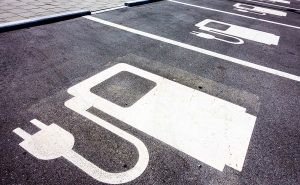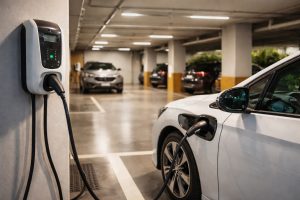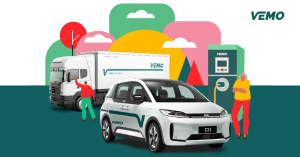
Makro Implements Electric Trucks for its Distribution Routes in Spain
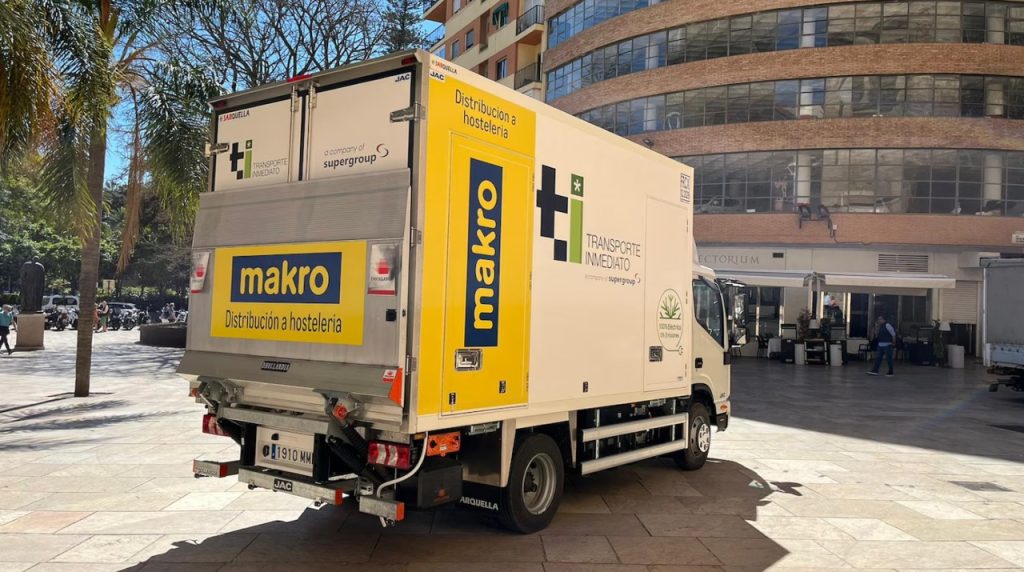
Makro, a wholesale distribution company that serves the hospitality industry through various channels, has begun operating two all-electric trucks for the final delivery phase of its hospitality distribution service in Malaga, Spain.
These two electric vehicles join nine others that the company will use in the urban areas of Palma, Madrid, Bilbao, San Sebastian, Pamplona, Vitoria and Barcelona, a move that represents a step towards the decarbonization of its final delivery logistics.
In this way, the introduction of this new electric fleet will enable the company to reduce its carbon footprint in distribution operations by almost 100 tons of CO2 per year, which is equivalent to approximately 8,400 kg of CO2 per truck annually.
Related content: Nestlé includes Renault’s first 100% electric Renault T Range truck in its fleet in Spain
This change will have a positive impact on the environment and quality of life in the areas where Makro operates by reducing pollution and noise. In the specific case of Malaga, it is estimated that the electric fleet will generate annual savings of approximately 16,800 kg of CO2.
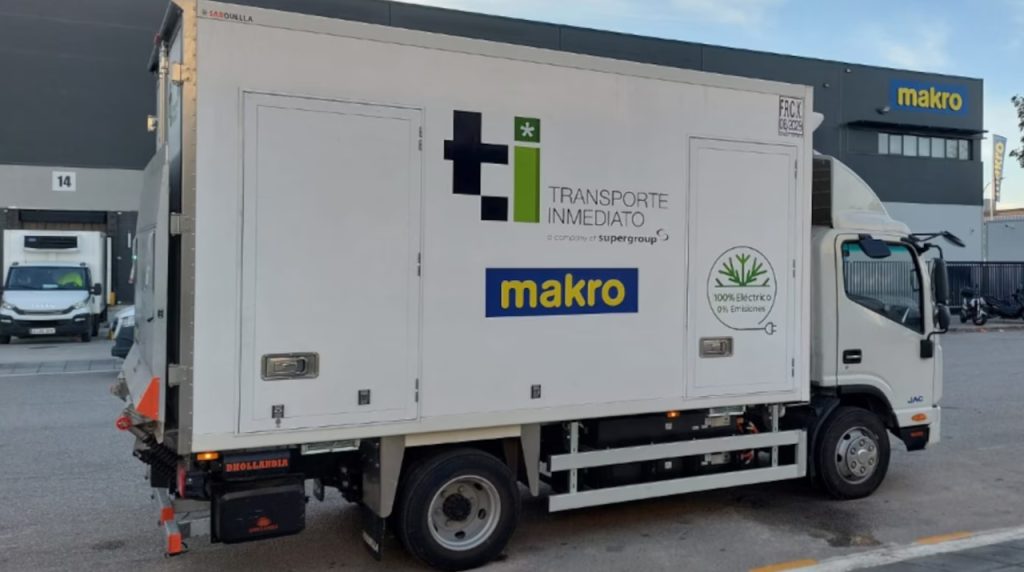
Makro: More Autonomy, Less Noise
To implement this sustainable mobility initiative, Makro has entrusted Transporte Inmediato, its main last-mile transport partner in Spain, to purchase the vehicles from JAC Motors Iberia.
Thus, the new electric fleet guarantees a real autonomy of more than 200 km with the refrigeration equipment in operation throughout the day, or up to 230 km with a dry box. In addition to reducing CO2 emissions, these vehicles do not generate noise.
“As a leader in multichannel wholesale distribution to the hospitality industry, at Makro we take on the responsibility to lead by example by making decisions that reduce the impact of our operations on the environment and, at the same time, can inspire others to do so,” said Eduardo López-Puertas, Makro Spain‘s Integral Supply Chain Director.
“This commitment to environmentally friendly transportation reinforces our commitment to sustainable growth, the environment and the communities in which we operate, a commitment for which we have developed a sustainability strategy that is integrated transversally into our business model,” he concluded.




